|
https://mailchi.mp/5b89ae05e533/june-newsletter-from-esjf
0 Comments
Russ Lowe and Sung Sohn taught a group of eleven interns at the Pacific Atrocities Education on “comfort women” history and issues. Ten college students and one high school senior made insightful comments and asked thoughtful questions. One voiced that she believes social justice should be the core component of history.
This summer, interns from various ethnic backgrounds are researching multiple topics on WWII in the Pacific theatre, including the correlation between the Japanese economy and the Korean War, Vietnamese famine, and Chinese military presence in Burma. They’ll have a showcase of their culminating work on July 25. We were busy exploring the city, learning more about Korean history & culture, and, of course, tasting delicious foods. We made sure to have some live octopus at the Noryangjin seafood market, followed by deliciously cold and sweet Korean shaved ice, bingsoo! The two flavors of bingsoo we shared were the original red bean shaved ice with sweet rice cake and English tea shaved ice with hazelnut ice cream and fresh orange wedges. The SFUSD teachers also enjoyed visiting local museums, the War Memorial of Korea and the Museum on Korean Palaces, while one teacher also visited the DMZ.
The next day, we toured Changdeok Girls’ Middle School, known as Future School: a public pilot school supported by the Seoul Metropolitan government, designed to meet the challenges of the future. Changdeok uses cutting-edge technology, has small class sizes of fewer than 15 students, applies innovative pedagogy, and offers state-of-the-art facilities. While the school uses the same textbooks and offers the same courses for the same length of the time as other public schools, it looks and feels different. Progressive thinking is fostered in an engaging and nurturing environment. In fact, the principal, who kindly gave us the school tour, told us that no student falls asleep in class. After the school tour, some of us went to see a theatrical performance with no dialogue and a lot of action. We all went to Gyeongbokgung Palace and nearby Bukchon, a historic Korean village with traditional architecture. We opted to have dessert before our final dinner together as a group in Seoul, this time Mango Mango shaved ice, another amazingly delicious flavor! After dinner together, some of us went to see the night view of Seoul at Namsan. The five days in Seoul were informative, moving, eventful, and memorable. ESJF deeply appreciates the Korean Council for organizing the international symposium with great attention to detail. Our trip gave us many ideas to incorporate in the classroom and renewed our energy to continue promoting education in social justice. ESJF also thanks the Korean Council, Erin Hanlon, Christina Tang, and Connie Byun for sharing their photos, included in this newsletter. After visiting the War and Women’s Human Rights Museum, all symposium participants joined the 1392th Wednesday rally held across from the Japanese embassy in Seoul. At the rally, Vasfije Kransniqi-Goodman, a survivor of wartime sexual violence in Kosovo, was the second recipient of the Kim Bok-dong Peace Prize. Several teachers, survivors, and activists from outside of Korea spoke at the rally. ESJF’s message to the rally attendees follows:
We, the teachers from the San Francisco Bay Area, are honored to be here. To the victims who are here and the ones who are no longer with us, we want to say that we see you, we hear you, and we will continue fighting with you. This issue of wartime sexual abuse will not go away until the men and women in power show in their actions that they fully realize its importance and join the international movement to stop sexual violence. Grandma Won-ok Gil and Yong-soo Lee, former Japanese military sex slaves, attended the rally, energizing everyone. The demonstration ended with the wonderful news that the Korean Council will soon open the Kim Bok-dong Center in Uganda. The center will include the Kim Bok-dong memorial room, museum displays on Japanese military sexual slavery and the history of the Ugandan Civil War (1981-1986), and a school. The theme of the second day of the 2019 Elimination of Sexual Violence in Conflict Week International Symposium was “Endless Pain: The Prevention of the Crimes of Sexual Violence in Armed Conflicts.” The talks that were given continued to focus on the Japanese Military Sexual Slavery Issue and also looked at the sexual slavery in more recent conflicts in the Democratic Republic of Congo, Kosovo, and with the Lord’s Resistance Army in Uganda. The day began with the introduction of another Japanese military sexual slavery survivor, halmoni Won-ok Gil, who sang a song for the assembled participants and said a few words of greeting.
The keynote speaker of the day was Rashida Manjoo, Professor of Public Law at the University of Cape Town and the former UN Special Rapporteur on Violence against Women. The title of Professor Manjoo’s speech was “United Nations Developments regarding Sexual Violence in Conflict and the Importance of Reparations that are Transformative.” Prof. Manjoo laid out in her talk the prevalence of sexual violence in 20th and 21st century conflicts and then explained what the United Nations is doing about this issue. In April of 2019 the United Nations adopted Resolution 2467, “Women and peace and and security: Sexual violence in conflict.” However, due to objections from member states such as Russia, China, and the United states, draft language which addressed “accountability and a survivor-centered approach” to causes and effects of sexual violence as well as “sexual and reproductive health and rights” were removed from the resolution. Nine times since 2000 the United Nations has adopted resolutions addressing the issue of sexual violence against women during armed conflict and its aftermath. As a result sexual violence in all of its forms is now recognized internationally as a tool of war and a bureaucracy has been set up to track the use of sexual violence in armed conflict, provide a forum to prosecute the perpetrators, and work on the need to offer reparations to the victims. She concluded by stating that while there is now widespread international recognition of sexual violence in conflict as an issue, and that structures exist to address this issue, there is still a great deal of work which needs to bd done before this issue even beignets be addressed properly. The next speaker of the day was Bonane Akim Bugeso, the coordinator of REMED, an organization created to provide support to the women and girls affected by sexual violence in the Democratic Republic of Congo (DRC). Participants were presented with the statistics related to sexual violence in the DRC, and then told about the organization REMED and it’s program “Mama Ushirika” program [ushirika means your problem is my problem in Congolese] which provides support groups for women and girls affected by sexual violence and provides them with school fees for their children, job training, and soon a literacy program. Bonane Akim Bugeso was followed by Jolly Grace Okot Adruville who spoke briefly of her experience being a forced child soldier for the Lord’s Resistance Army in Uganda and being raped by commanders of the army before moving on to her work with various NGOs to help survivors of Lord’s Resistance Army (LRA) sexual violence. She founded a organization called HEALS that provided play therapy for the children who were "night commuters” [night commuters were children sleeping en masse in public bus stops to avoid being kidnapped by the LRA] before going on to start WEND, a socially-responsible fashion company that employs victims of violence in northern Uganda at the hands of the LRA. The women are given training in sewing and tailoring, as well as instruction in personal health and finance, before being employed by WEND in sewing bags and toys for WEND’s product line. They are employed at a living wage and so are able to care for their families and send their children to school. The next speaker was Ms. Sylvia Acan, who in 2018 was the first recipient of the Kim Bok-don Peace Prize, and a survivor of sexual violence at the hands of the LRA, who eagerly told the audience about her organization - Golden Women Vision in Uganda, which uses group meetings to help Northern Uganda’s sexual violence survivors to talk through their experiences, learn skills that will allow them to set up their own small businesses, and provide micro loans to finance those same small businesses. All of the outside funds that Golden Women Vision in Uganda receives comes from the Butterfly Fund, a fund established by the first two survivors of Japanese Military Sexual Slavery to come forward, Kim Bok-dong and Gil Won-ok. The Butterfly Fund distributes funds to help other wartime rape survivors across the globe. Ms. Acan mentioned that while the Ugandan government has pledged to help survivors to rebuild their lives little has been done in the 24 years since that pledge was made. Ms. Acan was followed by Rose Aber, the third survivor of Lord’s Resistance Army sexual violence to address the symposium. Ms. Aber told the group about the micro loan program, Can Rewede Pee, for which she is treasurer. The group, with the help of outside finance from the Butterfly Fund, has been able to help the members set up their own small businesses which has allowed all of them to keep their children in school and also set up a hospitalization fund to pay the hospital expenses should any of their members be hospitalized. The most pressing need for group members turned out to be access to housing. In Uganda social mores make it difficult to rent housing if you have children but not a husband - all of the women have two or more children born to them from the sexual violence they experienced at the hands of the LRA. The Can Rewede Pee fund hopes to amass enough funds to help members build their own homes so that they are no longer at the mercy of landlords. After Ms. Acan’s talk the focus shifted away from the work being done in Africa and turned to Kosovo, where the 2019 recipient of the Kim Bok-don Peace Prize, Vasfijie Krasniqi-Goodman told her story about being raped at the hands of a soldier and a civilian during the Kosovo war, and the ordeal she has endured being the only victim of sexual violence from that conflict who has been willing to speak publicly though scores of women have come forward privately and told her their own experiences, and it is estimated that the victims number at twenty thousand. Ms. Krasniqi-Goodman is working for justice both for herself and for other victims through the international court system, which has currently not brought her perpetrators to justice, as being an activist for the Kosova Rehabilitation Center for Torture Victims (KRCT), which advocates for wartime victims of sexual violence across the globe. Lastly the symposium returned to Korea to look at what had been done both in terms of government recognition, reparations for victims, and education of the rising generation. Telling the audience that “the war is over but the war is still not over for the victims,” Yoon Meehyang recounted all the activism that had gone on in Korea since the first victims spoke out, Ms. Yoon mentioned both the progress that had been made as well as the setbacks. Regardless of the setbacks, and the fact that sexual violence still plagues women caught up in military conflicts across the globe, Ms. Yoon emphasized that there was still hope that more progress would be made and victims would get their reparations. We have gathered from Korea, Japan, the United States, Canada, and other countries around the world to commemorate the International Day for the Elimination of Sexual Violence in Conflict and to examine how to teach future generations to correctly remember the lives and history of the Japanese military sexual slavery victims and to resolve and prevent the sexual violence which still persists across the world, and to discuss how to promote this education and carry on its legacy.
Since Kim Hak-soon halmoni’s public testimony on August 14, 1991, approximately 30 years ago, the Japanese military sexual slavery victims have campaigned around the world, demanding that the Japanese government admit its war crimes and carry out its legal responsibilities, including an official apology and reparations. Victims also have left a message for the future generation: “We must let the people around the world know our issue, so that there would not be another victim like us.” It was the victims’ courageous testimonies and activities towards resolution of the Japanese military sexual slavery issue that created a change in the Japanese government, which previously did not educate their students of Japan’s act of aggression and crimes during WWII accurately. The international efforts of educators and activists made it possible for the history and issues of Japanese military sex slaves to be included in the curriculum and taught. Nevertheless, due to distorted perceptions of history, the Japanese military sexual slavery issue is no longer being taught in Japan, the country that perpetrated the crimes but still denies its responsibilities. In many countries, the Japanese military sexual slavery issue is yet to be included in textbooks or taught in classrooms. Education on the Japanese military sexual slavery issue is not only about simple delivery of historical facts, but also about learning about the persisting structural social problems that lead to sexual violence in conflict. It is also about contributing to social changes which establish and spread the awareness on women’s human rights and peace. In fact, from the last 30 years of the victims’ resilient efforts, we have come to witness “hope” in teenagers and citizens, both at home and abroad, who have come to understand the reality of the Japanese military sexual slavery and sexual violence in conflict and learn the importance of human rights and peace, and have become the main agents in the movement for resolution of the Japanese military sexual slavery and sexual violence in conflict issues. Therefore, we, who gathered here today, remember and reflect the voices of Japanese military sexual slavery victims who have lived as women’s human rights activists to demand the following:
In addition, we, teachers and education activists, resolve to carry out all our responsibilities to ensure that 1) the Japanese military sexual slavery issue is properly taught as a women’s human rights and peace issue and 2) the Japanese military sexual slavery issue is justly resolved and war disappears on the earth to create a society where women’s human rights and peace are guaranteed. We also resolve to continue our solidarity with other teachers, so that the Japanese military sexual slavery history is taught in more countries around the world. The first day of the 2019 Elimination of Sexual Violence in Conflict Conference hosted by The Korean Council in Seoul, South Korea was focused on the question of: “How do we teach about the Japanese military sexual slavery issue?” and consisted of presentations by an international group of educators. The conference was opened by keynote speaker Yoon Meehyang who spoke about the importance and challenges of teaching about the Japanese military sexual slavery issue. She was followed by Yang Chingja from the Kibotane Fund in Japan. Yang spoke about how textbooks in Japan are adopted and how the issue of “comfort women” have appeared and disappeared from Japanese middle school and high school textbooks. This has made it challenging to teach this history in Japan as teachers themselves may not know about the topic. Her organization was formed in 2017 to help promote the history of “comfort women” and in 2018 and 2019, they recruited Japanese college students to visit South Korea to learn more about the history.
Yang was followed by Sung Sohn, Executive Director of the Education for Social Justice Foundation (ESJF) in San Francisco, who spoke about the educational system in California and discussed the content of “comfort women” in the 2017 California History Social Studies Framework. Sohn also talked about the work that ESJF has been done to help implement the framework in Bay Area classrooms. Erin Hanlon, a teacher from Lowell High School, spoke next about the challenges in teaching the topic including: its exclusion from the textbook used by most high school students in the San Francisco Unified School District, the trade-offs teachers have to make in terms of teaching certain topics, and a concern of desensitizing students by teaching too many atrocities. Christina Tang, a teacher from Galileo Academy of Science and Technology, was the last educator from San Francisco to speak; she spoke of challenges she’s observed in teaching “comfort women” history and how ESFJ’s Teacher Guide and their workshops have tried to address those issues. After lunch, educators from Canada and South Korea spoke. Judy Cho, program director of ALPHA Education in Toronto spoke about the work the organization has done to promote the history of WWII in Asia, including “comfort women” history, in classrooms that are often Eurocentric. They do outreach and have a variety of lesson plans to help educators teach the topic. Next, Mark Croswell, a teacher from Bayview Secondary School, spoke about his historical method (ask questions, collect and analyze data, create arguments, and communicate findings) and his technique of analyzing sources (OPCVL) and how he applied that to having students analyze sources from “comfort women” themselves and from the perpetrators. Then Seong Hwan-cheol, a teacher at Ewha Girls’ High School and sponsor of the History Club, gave a presentation about how the students in his club began a movement to build a “comfort women” memorial, called the Statue of Peace, on the grounds of their high school. This eventually spread to 244 other schools in South Korea erecting their own statues and in 2018, 46 high schools built 259 road blocks that each inscribed the story of a “comfort woman” survivor. He spoke about students’ strong desire to make change and be activists and how important it is to support them. The last speaker was Byean Hyera who demonstrated her problem-posing approach to teaching “comfort women” history and English at the same time at Hoam Middle School. Day one was a unique chance for teachers across the world to share their experiences, introduce resources and techniques they use in teaching, and inspire each other. Teachers left with new ideas that they could apply to all topics they are teaching, not just “comfort women” history. However, they also left with a renewed commitment to teaching “comfort women” history as they heard the urgency of the survivors firsthand. Teachers felt a sense of international solidarity as they saw the many ways and places “comfort women” were being taught and that they were part of a heretofore unseen group of educators all working towards a similar goal. |
CategoriesCategories |
Proudly powered by Weebly
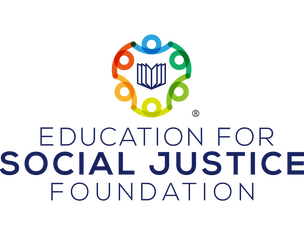
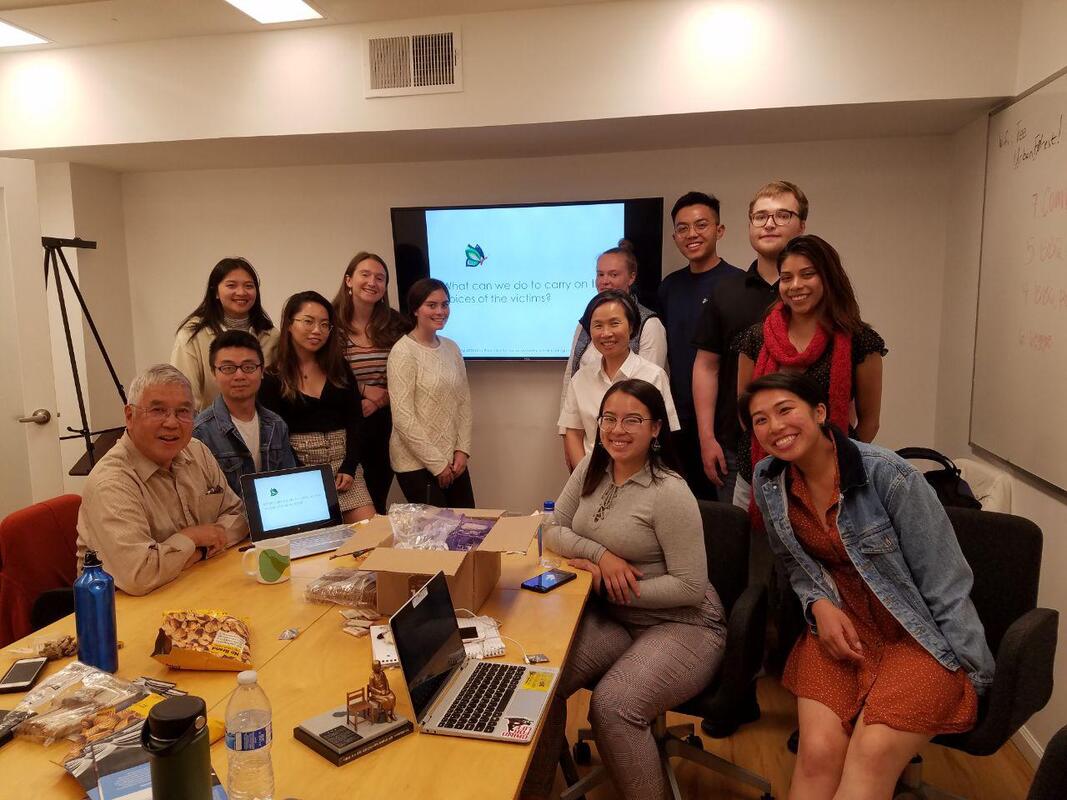
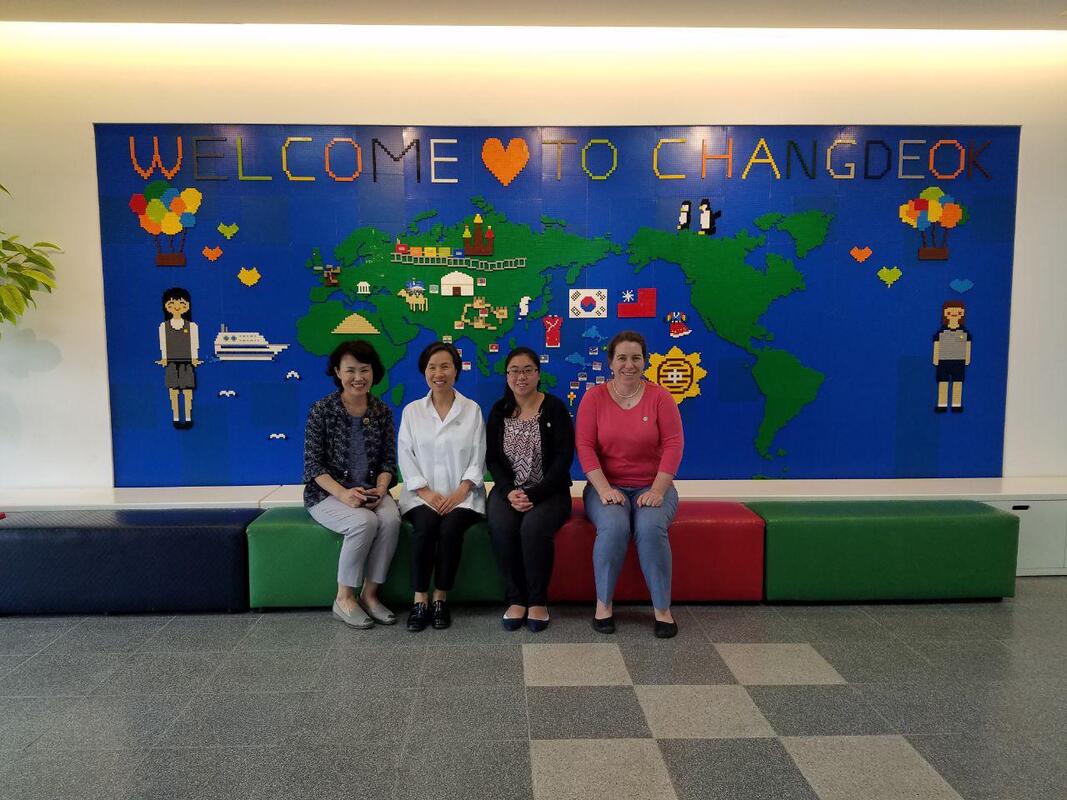




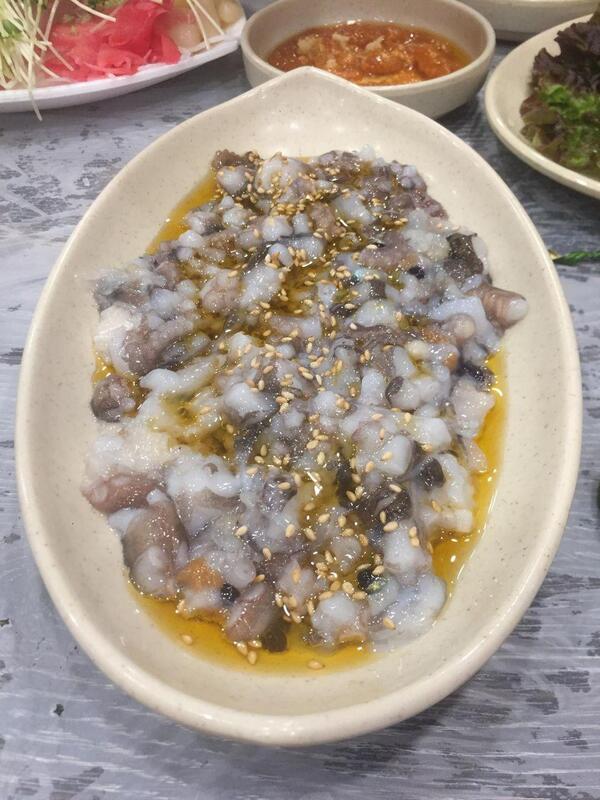
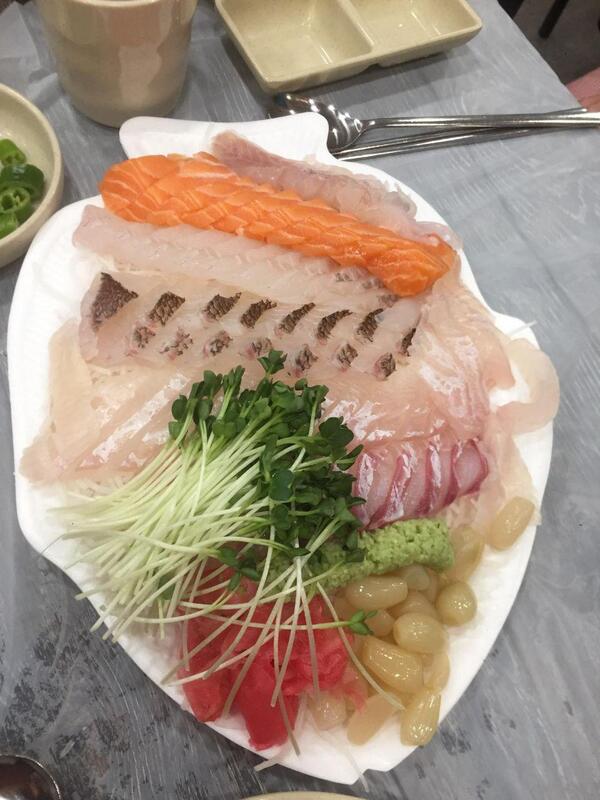
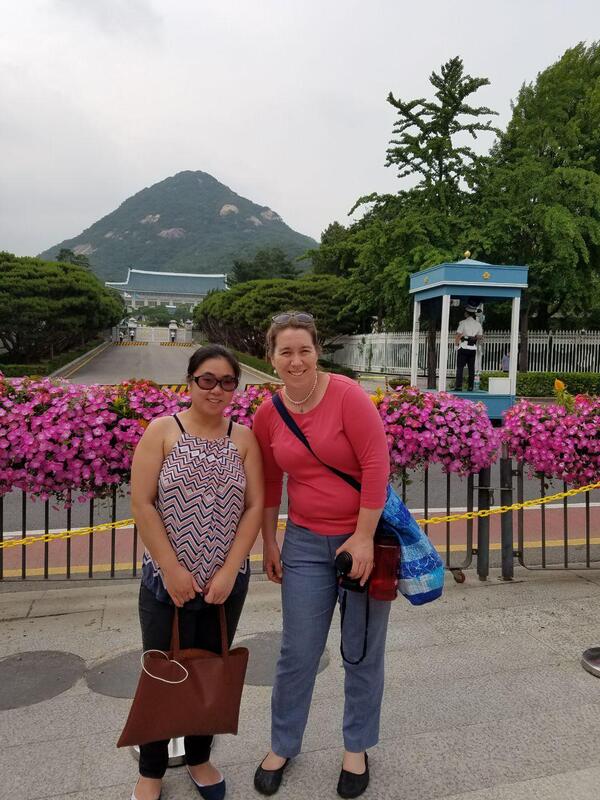
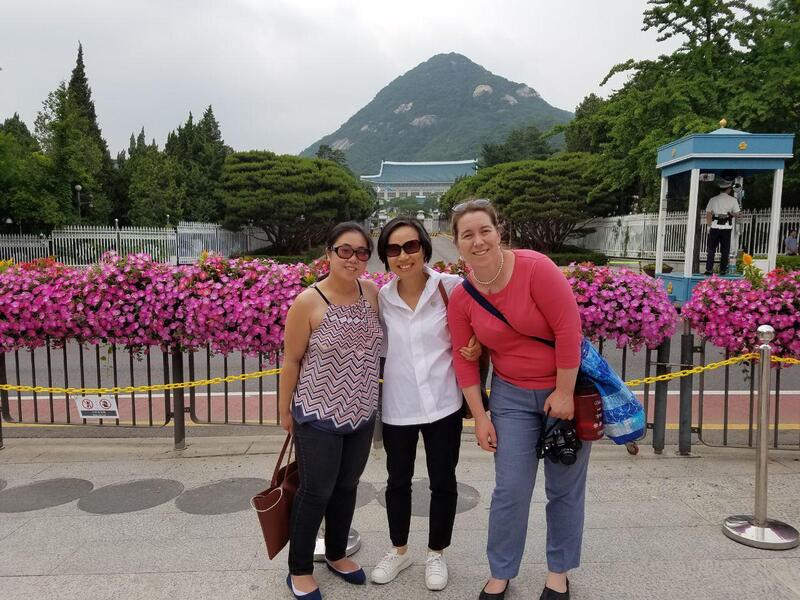
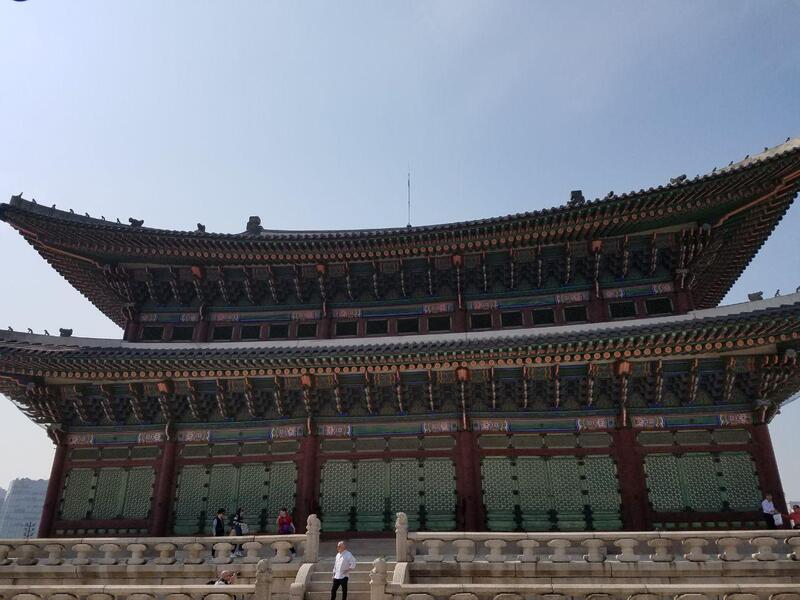
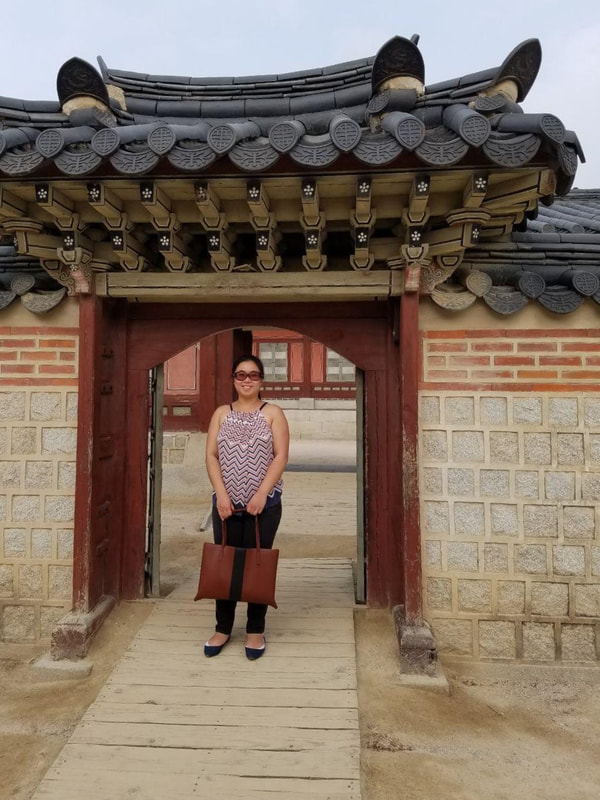

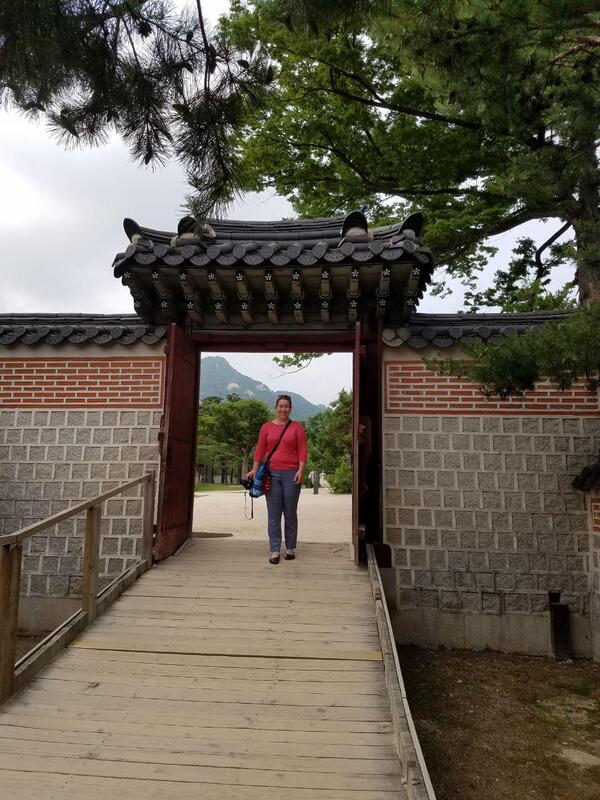
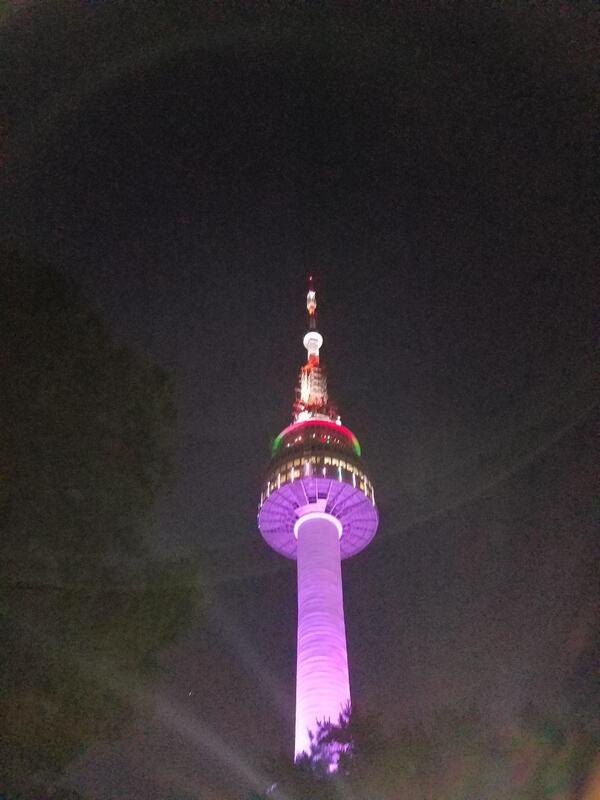

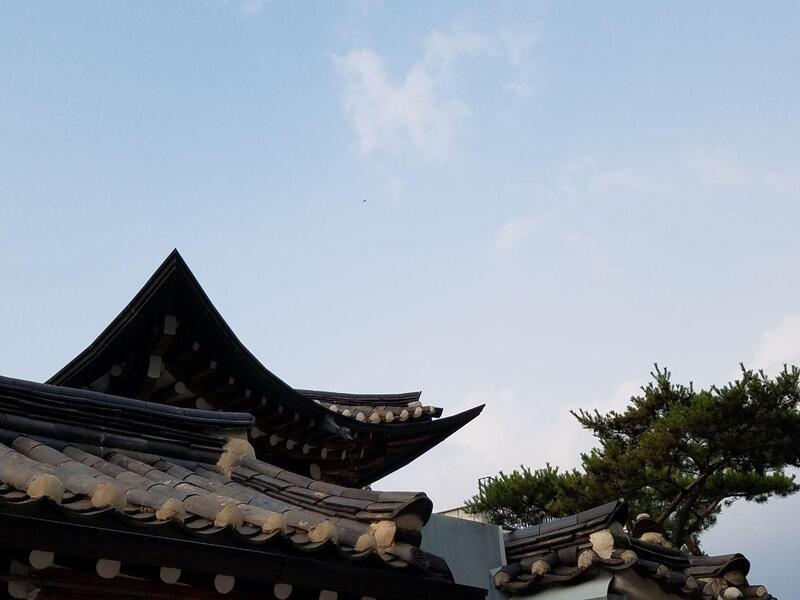
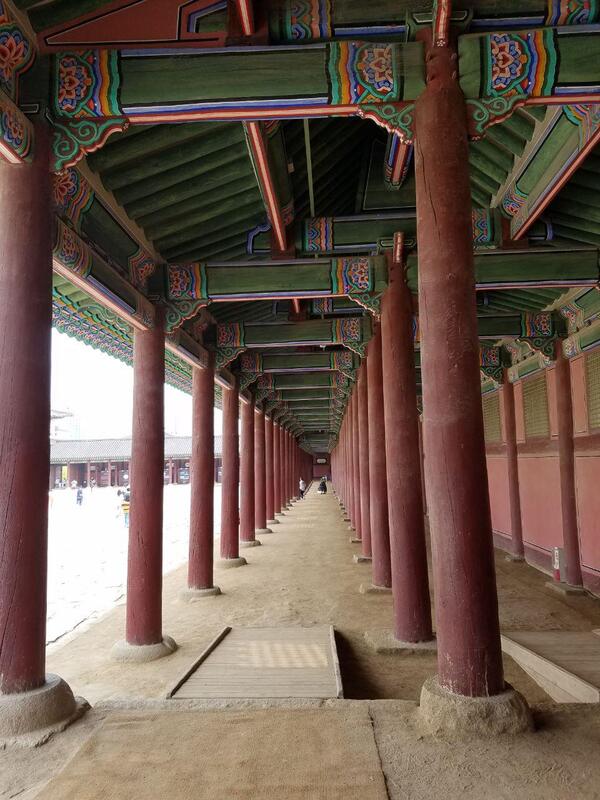


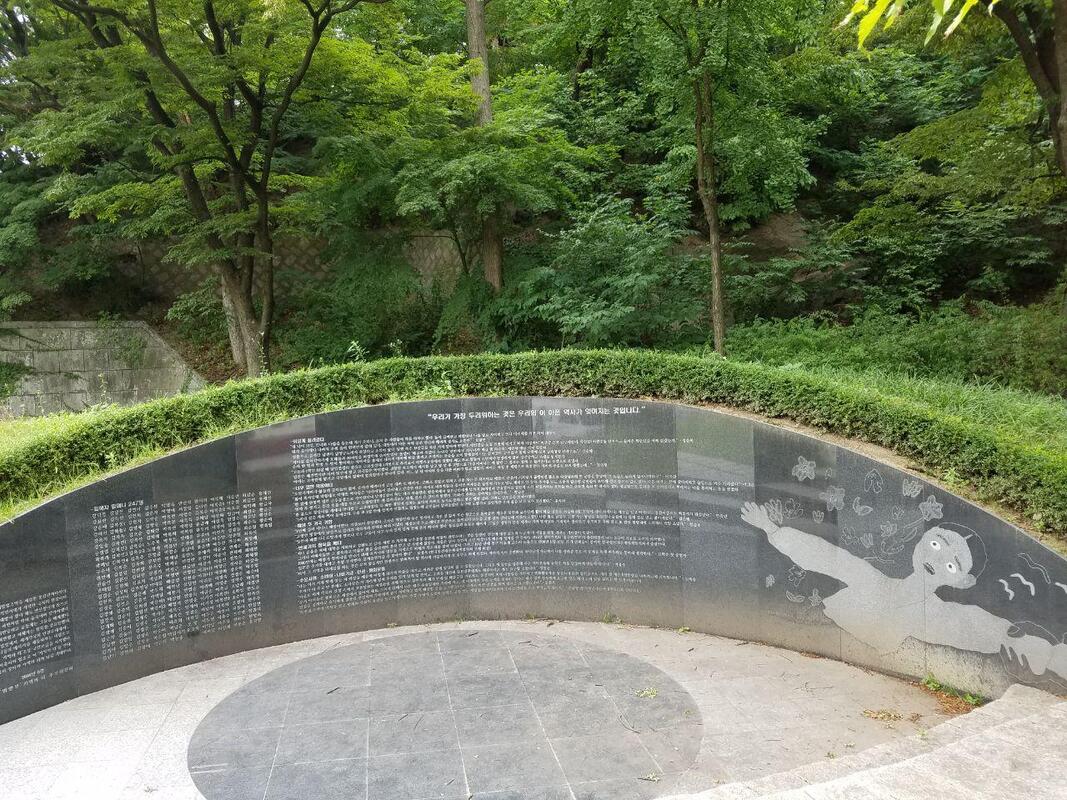
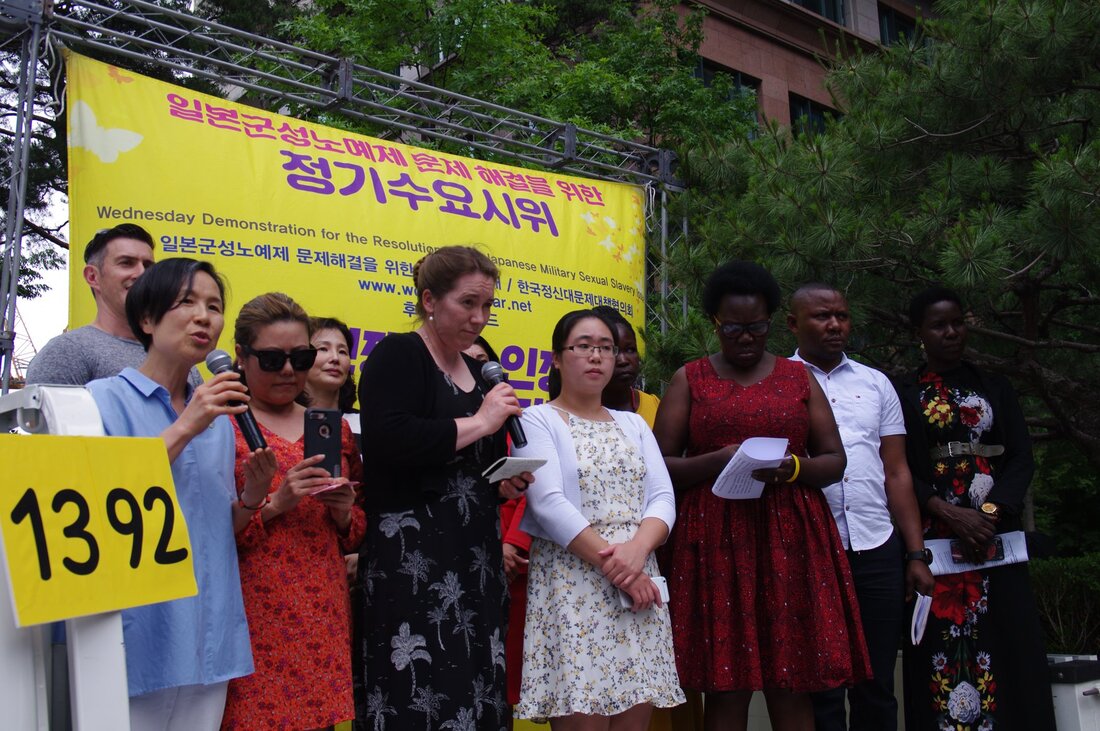
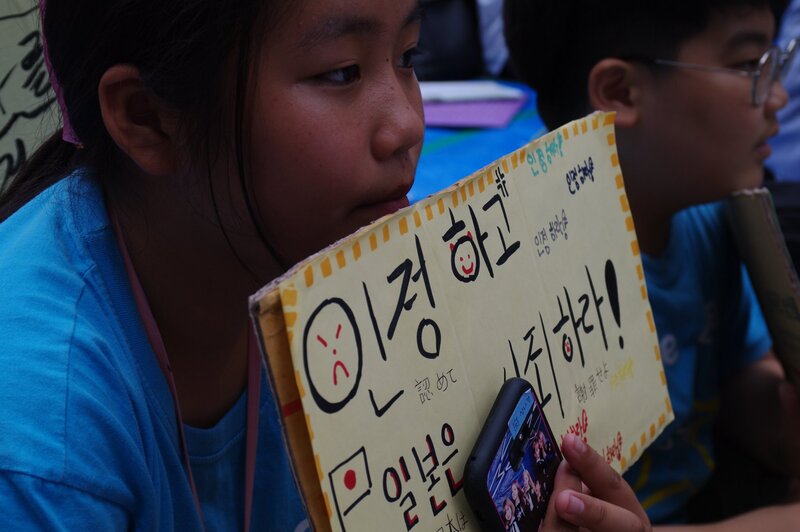
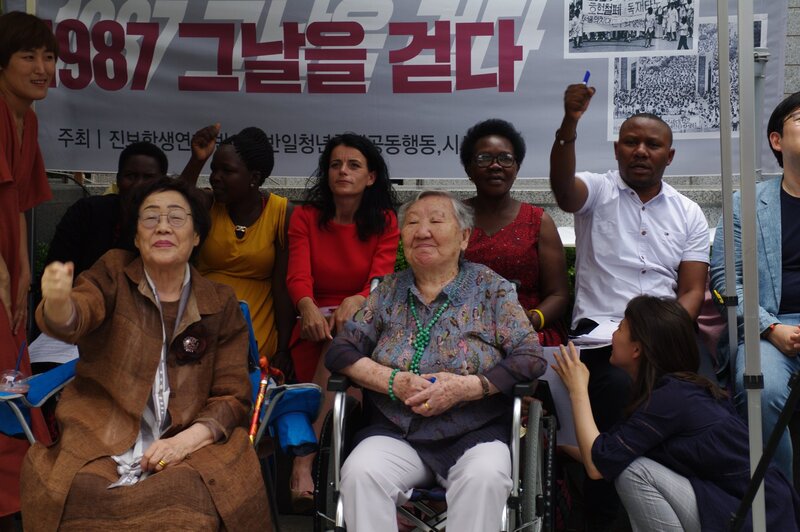
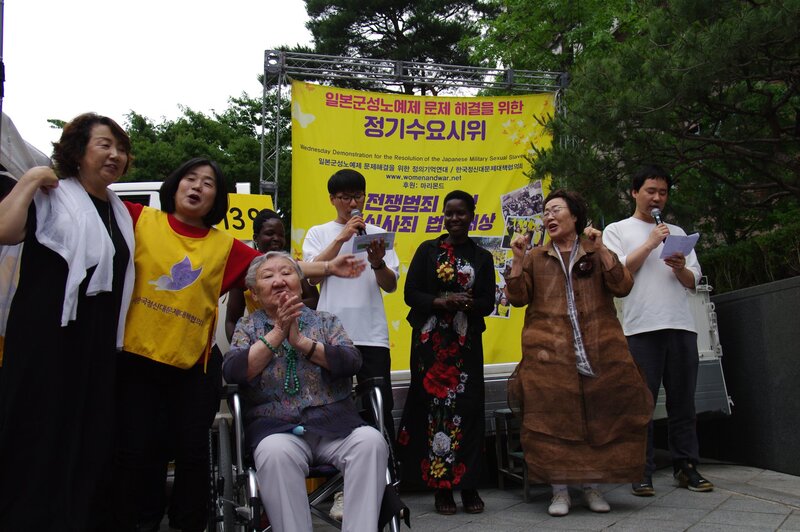
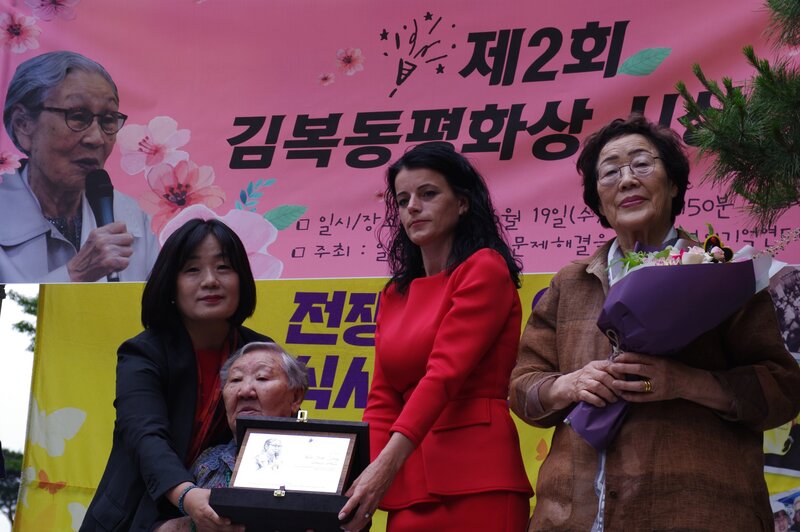
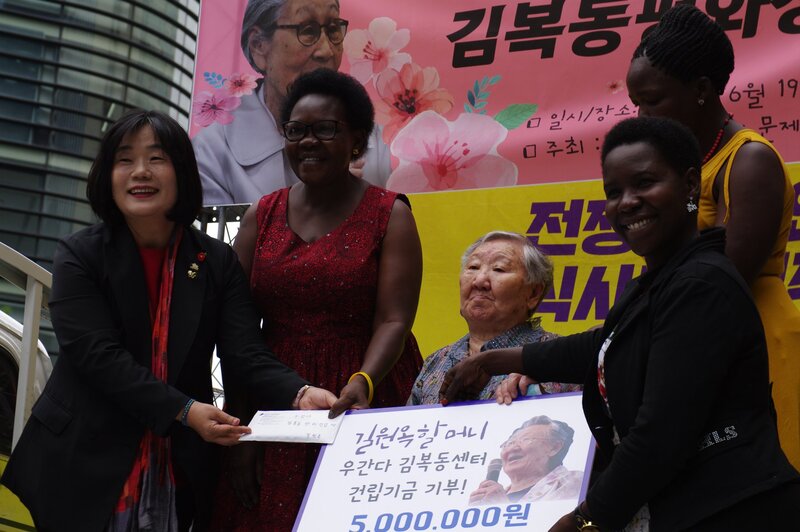
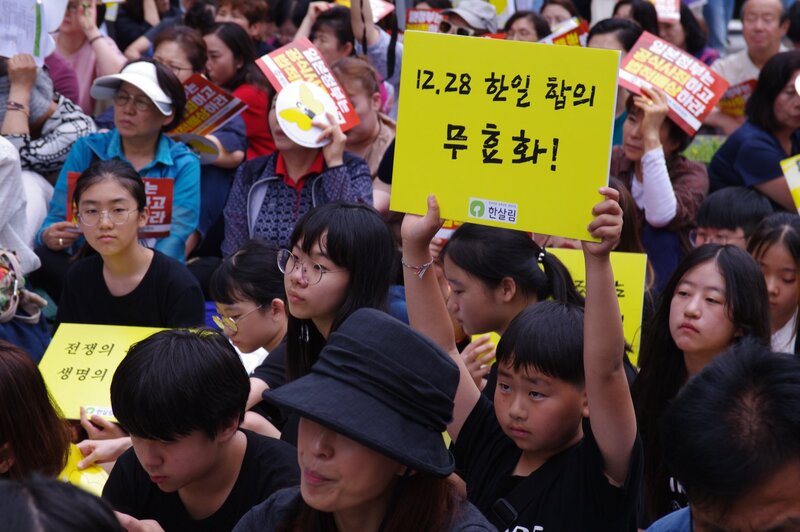
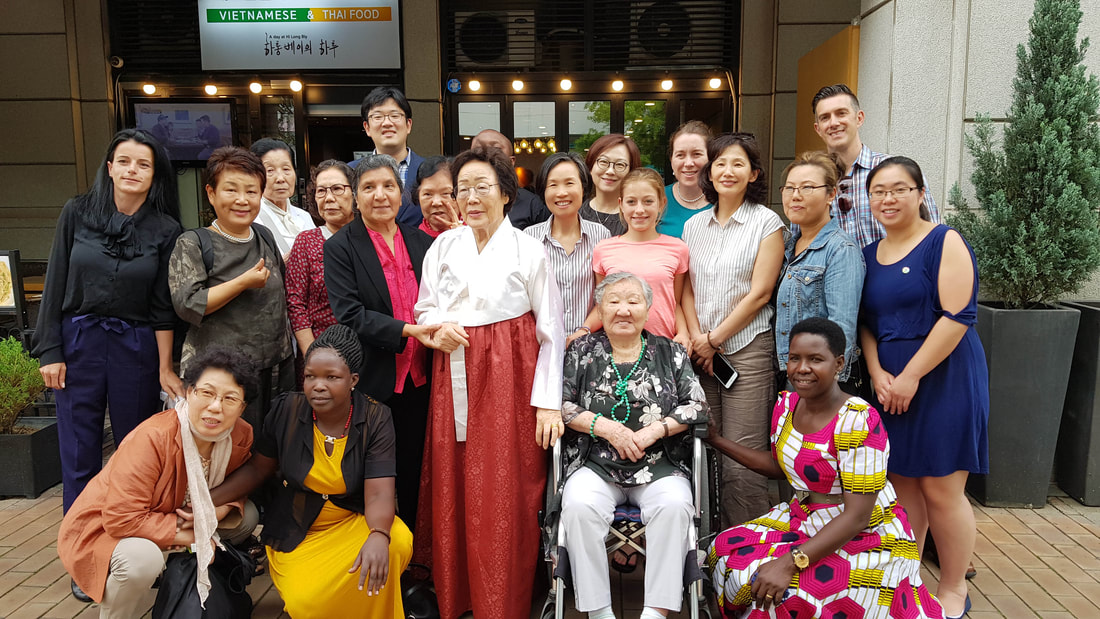
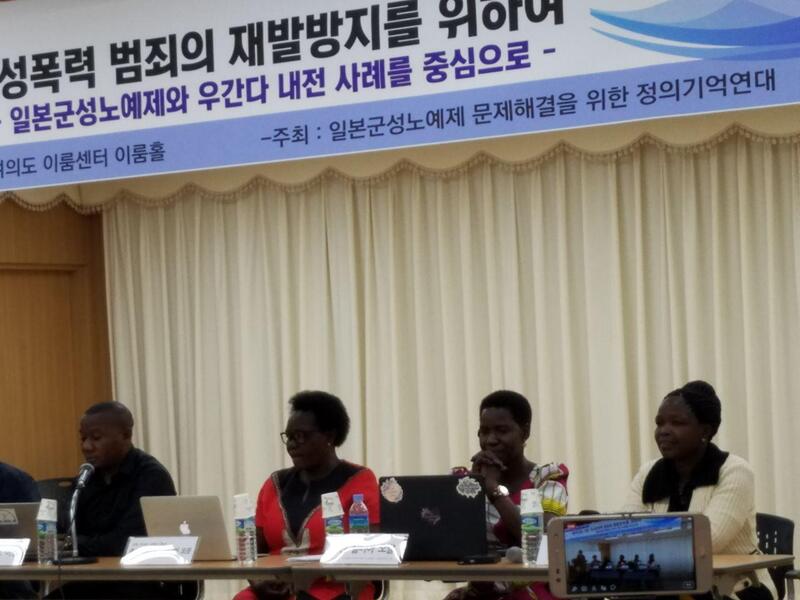
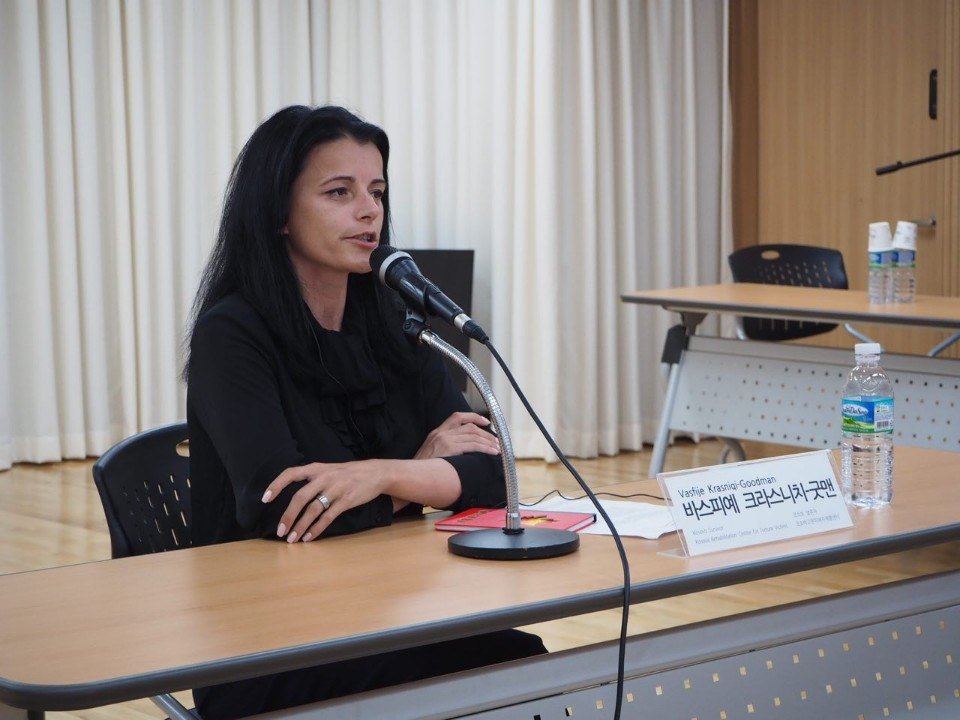
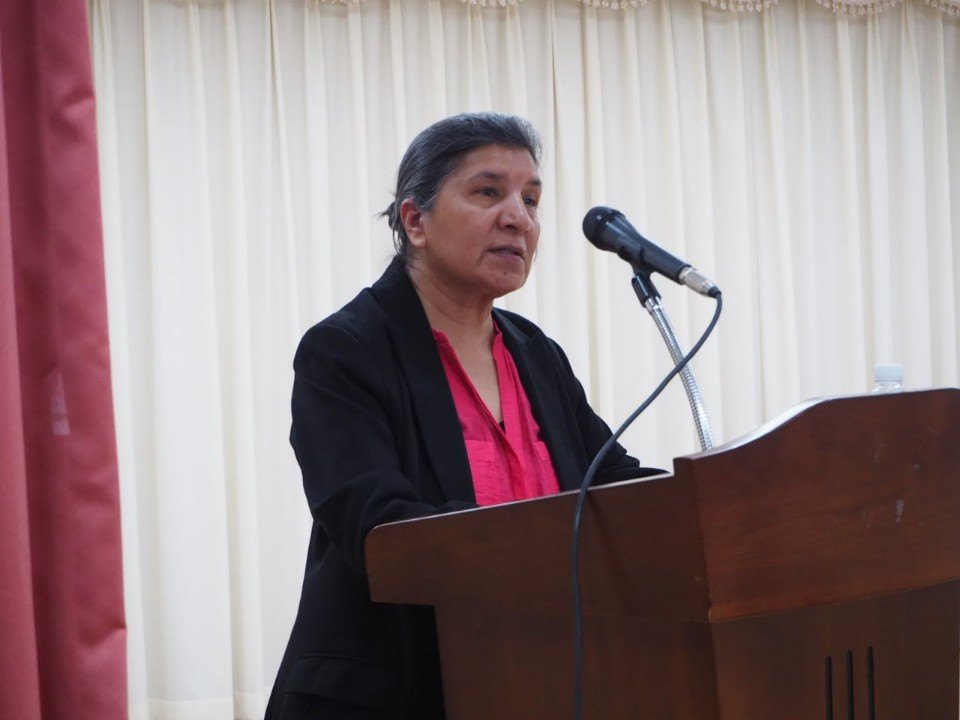
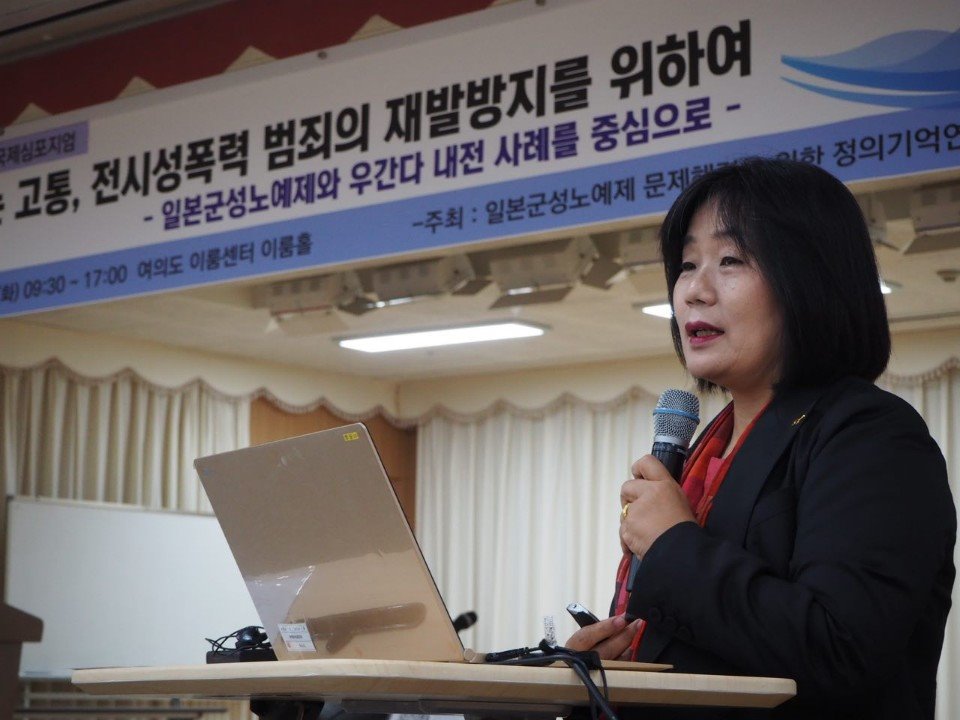
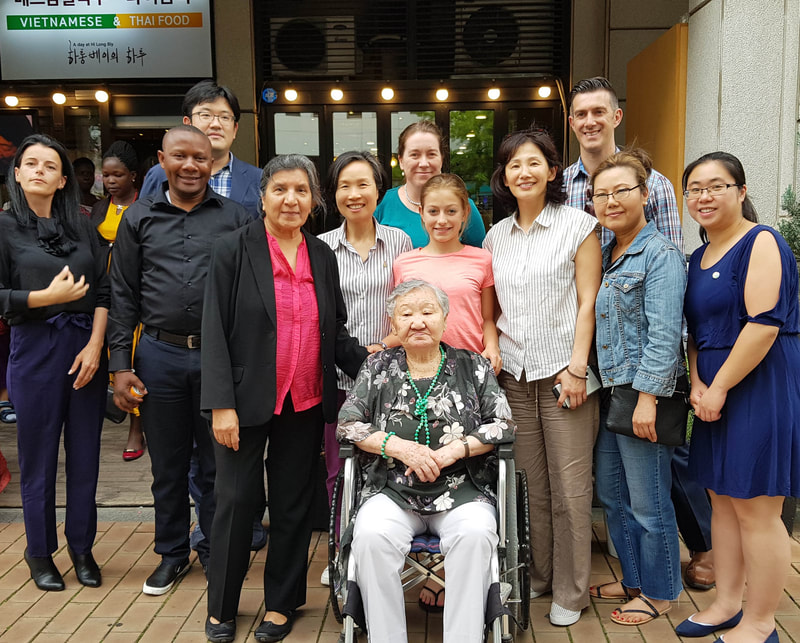
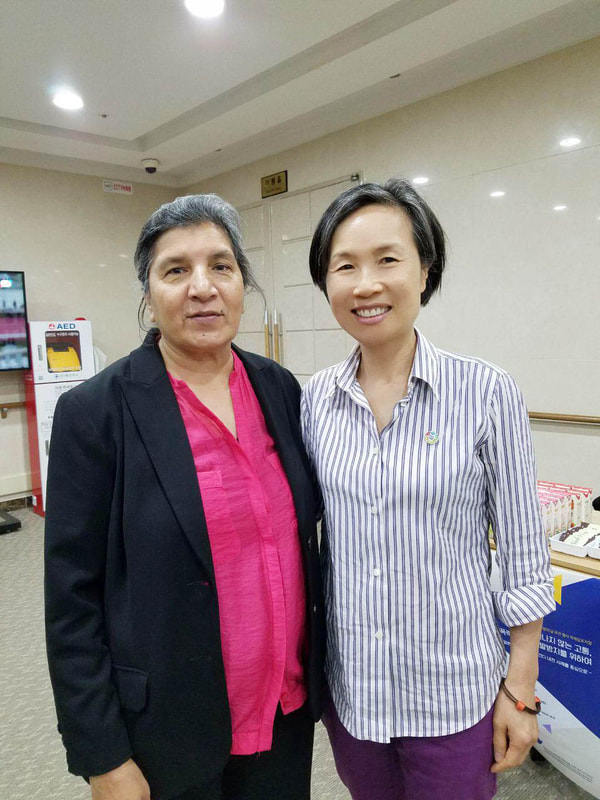
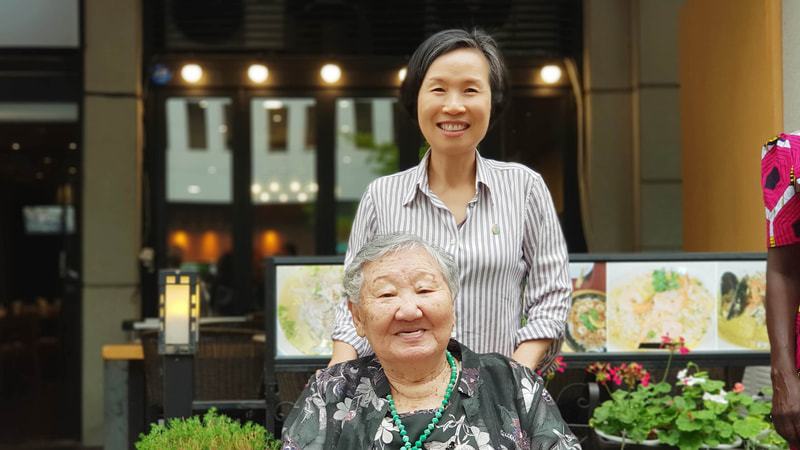
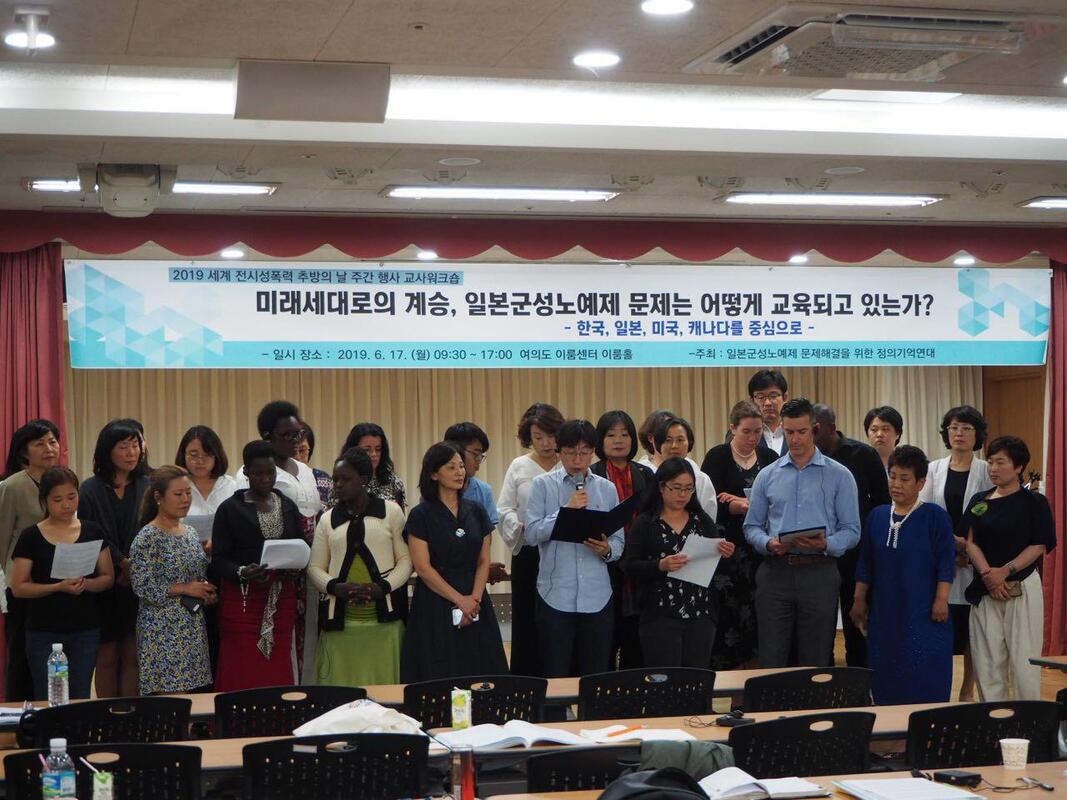
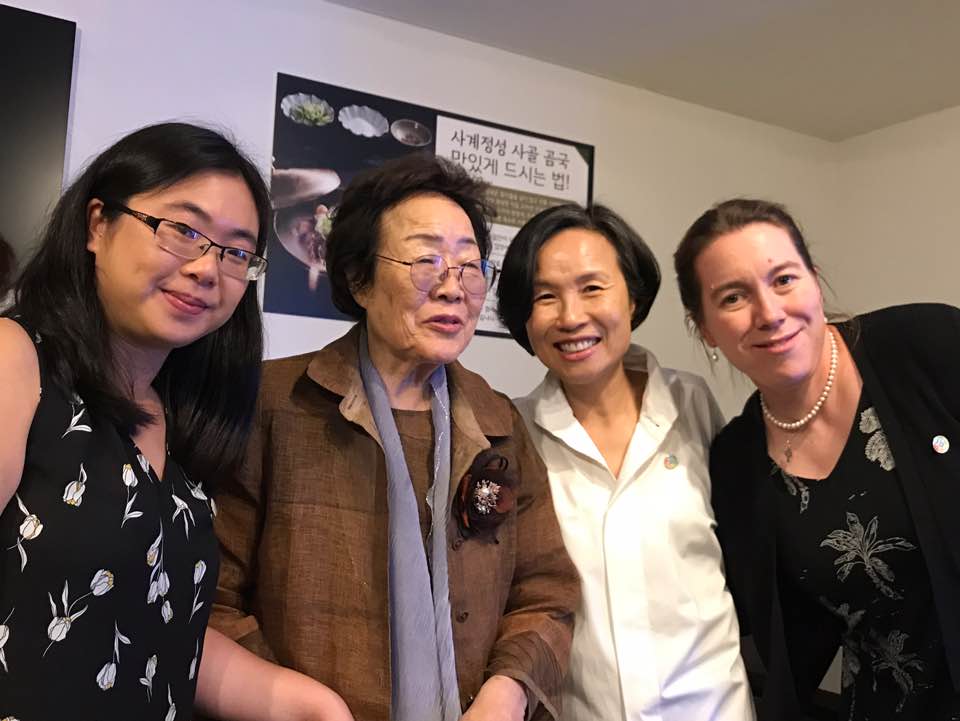
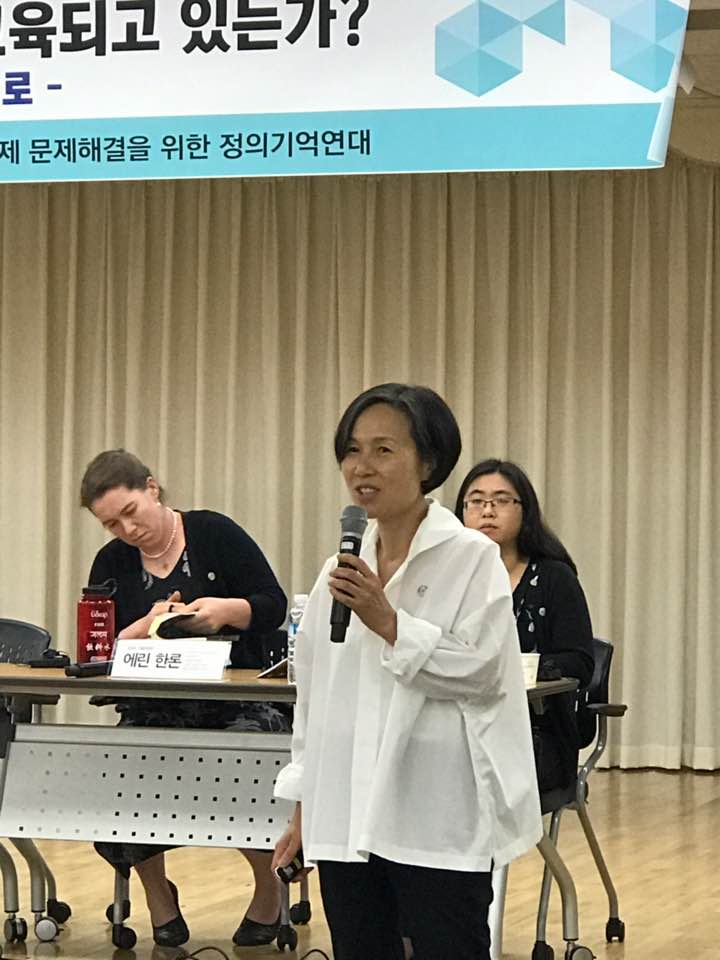
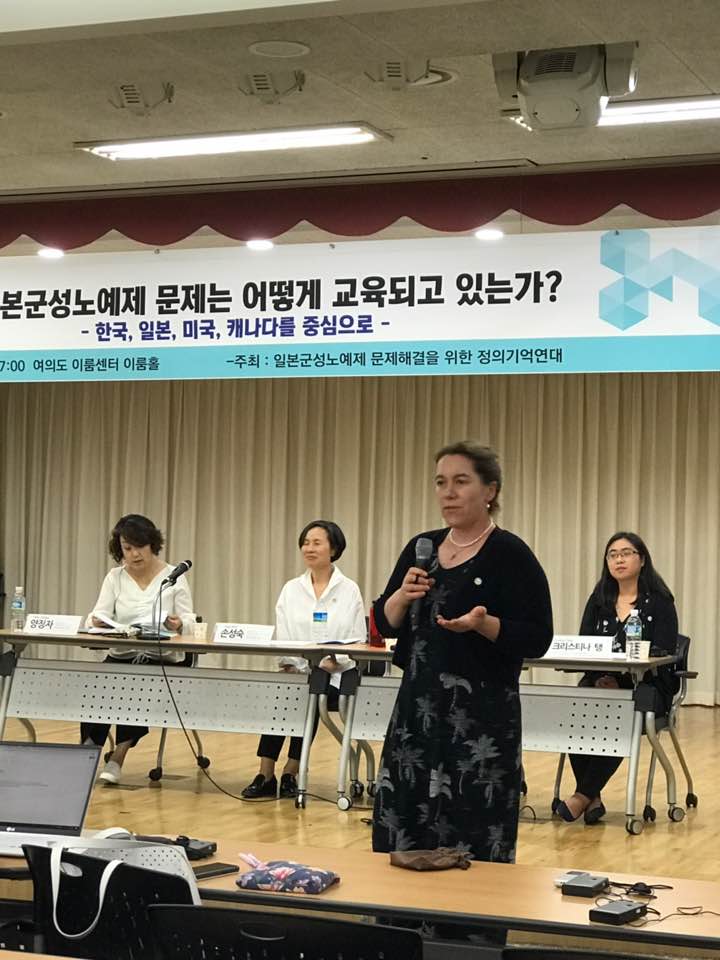
 RSS Feed
RSS Feed